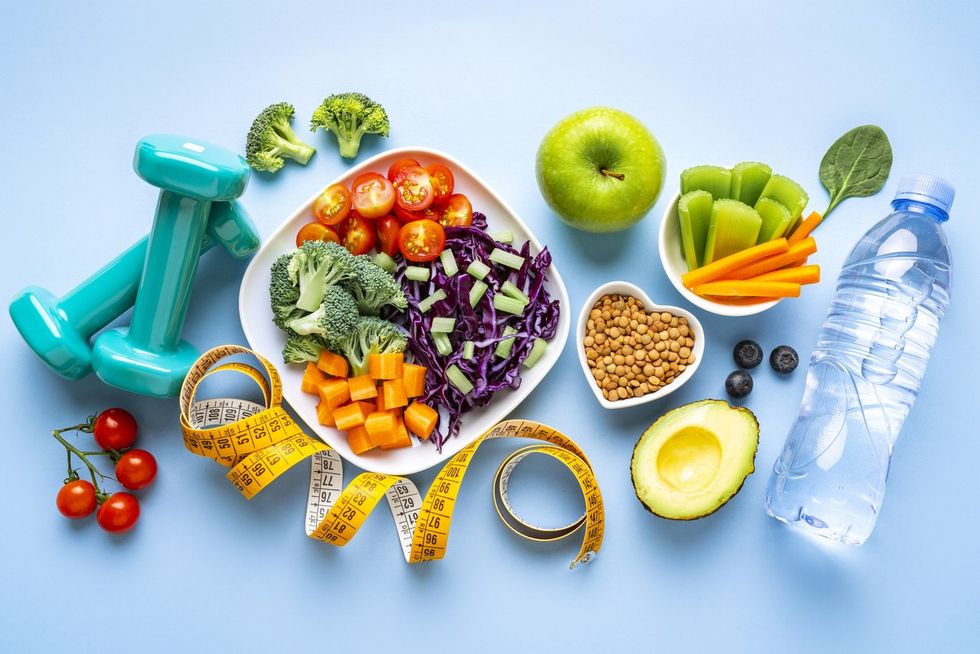by LAUREN CODLING
AN ASIAN GP has praised his colleagues and the local community for “coming together” during the Covid-19 crisis.
As Eastern Eye went to press on Tuesday (14), more than 93,800 confirmed cases of coronavirus had been confirmed in the UK. At least 12,100 have died in hospitals after contracting the infection.
Speaking to Eastern Eye last week, Dr Amit Anand* revealed how his community in east Leeds have come together to support the local doctors’ surgery as cases continued to rise across the country.
Some retired NHS staff have offered to help out at the practice when needed, while others have volunteered to deliver medicine to elderly people who are unable to leave their homes. The surgery has also received homemade personal protective equipment (PPE) from local schools. The art and design department of a local secondary school delivered protective visors for staff to wear while assessing patients.
“The local community has been very helpful,” Dr Anand said. “We’ve had a number of volunteer groups who have contacted us to see if they can help. It has been really great to see.”
Staff members at the surgery have also made efforts to “chip in” and ensure they provide as much help as they can.
“I’ve been very impressed as everyone has come together for a common cause,” the GP said. “It has brought us a lot closer together than we have normally been.”
Dr Anand, who is currently working full-time, admitted he was initially “fearful” when the outbreak began. He suffers from type 1 diabetes so is considered to be in a high risk group, meaning he had an increased chance of developing a severe illness from the virus.
“I was apprehensive when seeing patients as I know that those with diabetes don’t seem to do well when infected,” he said, saying that the PPE initially provided for staff did not feel adequate to protect them from the virus. At first, employees were given face masks and gloves which were readily available at the surgery before the outbreak began, and aprons.
“We didn’t think they would do much at all,” he said.
In response, Dr Anand revealed that the practice bought its own set of scrubs and also sourced PPE while waiting for supplies from elsewhere. The lack of protection meant he was wary of treating patients with Covid-19 symptoms. “For those patients, I didn’t even allow them to sit down,” he said.
Dr Anand has since begun working remotely from home and speaks to patients via the phone or on video calls. “I think if I was at work now, I would definitely feel quite fearful and would have to say that I wouldn’t want to see a patient with suspected coronavirus,” he admitted.
Although Dr Anand noted that Yorkshire was behind London in relation to confirmed cases, the surgery has begun to prepare for busy periods. For instance, it remained open during the Easter bank holiday weekend, and staff members have offered to work on days they had booked off for annual leave.
The workload of administrative staff has also increased, Dr Anand claimed, as many were dealing with an increase in calls. “Some patients are trying to get bulk prescription orders, the same way that some people are bulk-buying food from shops,” he explained.
Currently, Dr Anand speaks to approximately 35-40 patients per day. He estimates that 20-30 per cent have been suffering with coronavirus symptoms. To avoid the infection spreading, the government has advised people not to go to GP surgeries if they are showing Covid-19 symptoms.
“The strategy is to reduce footfall and interaction between patients and staff,” Dr Anand explained. “Pretty much all practices are using telephones and are bringing minimal amounts of patients to the surgery.”
There have been a number of other changes to the everyday routine of GPs to halt the spread of the virus – for instance, some patients have started being examined in their cars. “This is not for everything, but we use it more for respiratory kinds of symptoms,” Dr Anand revealed. “Things like tonsillitis, where we can examine patients in their cars with a temperature probe, and give treatment from that point of view.”
*Name has been changed in order to protect identity


















